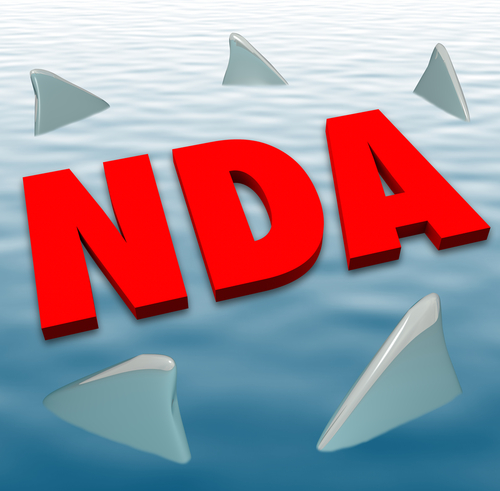“That’s the Chicago Way” – Jim Malone, the Untouchables
 Lets dial back a minute and revisit a topic from a few months ago: The Use of Nondisclosure Agreements.
Lets dial back a minute and revisit a topic from a few months ago: The Use of Nondisclosure Agreements.
Nondisclosure Agreements (“NDA’s”) can protect documents, information, and plans, anything that you as a business owner or executive might consider confidential. An NDA can protect any type of information that is not generally known. However, an NDA may also contain clauses that will protect the person receiving the information so that if they lawfully obtained the information through other sources they would not be obligated to keep the information secret and protect a person required to disclose information by a court order.
However, the delivering side must take steps to protect the information.
If it’s important enough to spend the time to write and negotiate a Nondisclosure Agreement, it should be important enough to take actual steps to protect the information.
Enter a recent Seventh Circuit Case, nClosures Inc. v. Block & Co., 770 F.3d 598 (7th Cir. 2014). The Plaintiff, nClosures, is an industrial design firm that developed metal cases for electronic tablets, such as iPads. nClosures attended a trade show to display prototypes. There, Block approached them about a potential business relationship. As an initial step the companies signed a confidentiality agreement.
So far, so good.
The Nondisclosure Agreement had several provisions about how and why the information would be used and the “Permitted Purpose.” However, outside of this initial agreement, nClosures did not require other Block employees or engineers to sign additional agreements in order to access design files. Confidential information flowed, but no final agreement was signed.
A handshake deal was made, issues arose, and the lawyers were called in. One of the issues at hand was whether the Defendant used information outside the Permitted Purpose as defined under the Agreement.
The Court noted that additional considerations arise when it comes to the question of the enforceability of a confidentiality agreement. See Tax Track Sys. Corp. v. New Investor World, Inc., 478 F.3d 783, 787 (7th Cir. 2007). In Tax Track, the Seventh Circuit held that a federal court applying Illinois law “will enforce [confidentiality] agreements only when the information sought to be protected is actually confidential and reasonable efforts were made to keep it confidential.” Id. (citing Curtis 1000, Inc. v. Suess, 24 F.3d 941, 947 (7th Cir. 1994)). To enforce the confidentiality, the court looks that the person seeking to enforce the agreement takes reasonable steps to keep its proprietary information confidential. nClosures Inc. v. Block & Co., 770 F.3d 598, 601-602 (7th Cir. Ill. 2014).
But that’s Chicago – what does that mean in New York?
New York is already chipping away at Nondisclosure Agreements. So, it means that if you want your NDA to stand, make sure to protect yourself by taking the following steps:
- Sign a tailored, targeted Nondisclosure Agreement;
- Define the Permitted Uses in a targeted manner;
- Do not give information for reason outside that permitted purpose;
- Mark your documents as “Confidential;”
- Distribute the documents as “Confidential” to only those persons who need the information for the Permitted Use;
- Have those persons who need the information for the Permitted Use sign individual Nondisclosure Agreements; and
- Everything must be in a signed writing, especially the underlying transaction which was the point of the Permitted Use.
If you have questions, please feel free to give us a call or send us an email.
